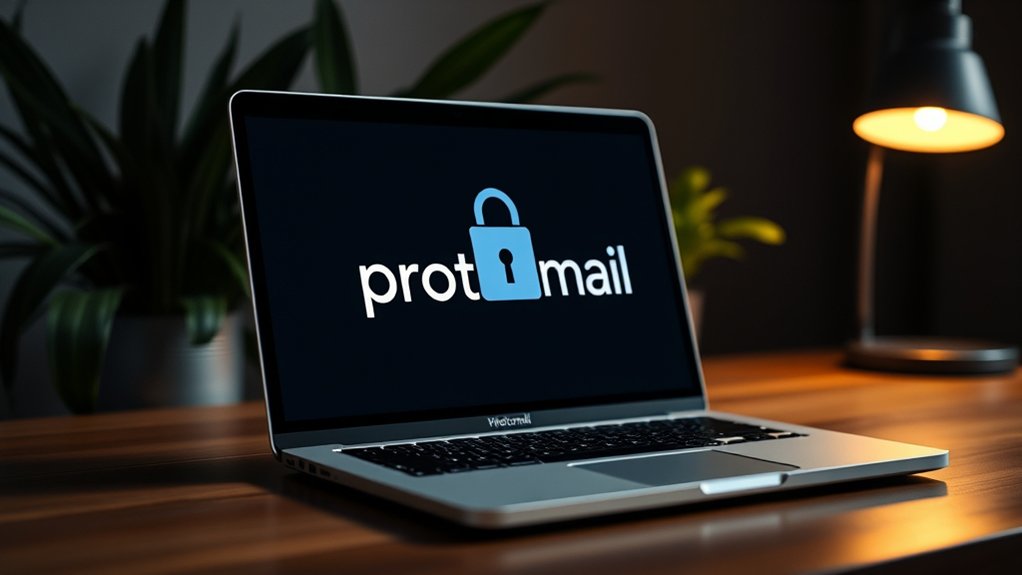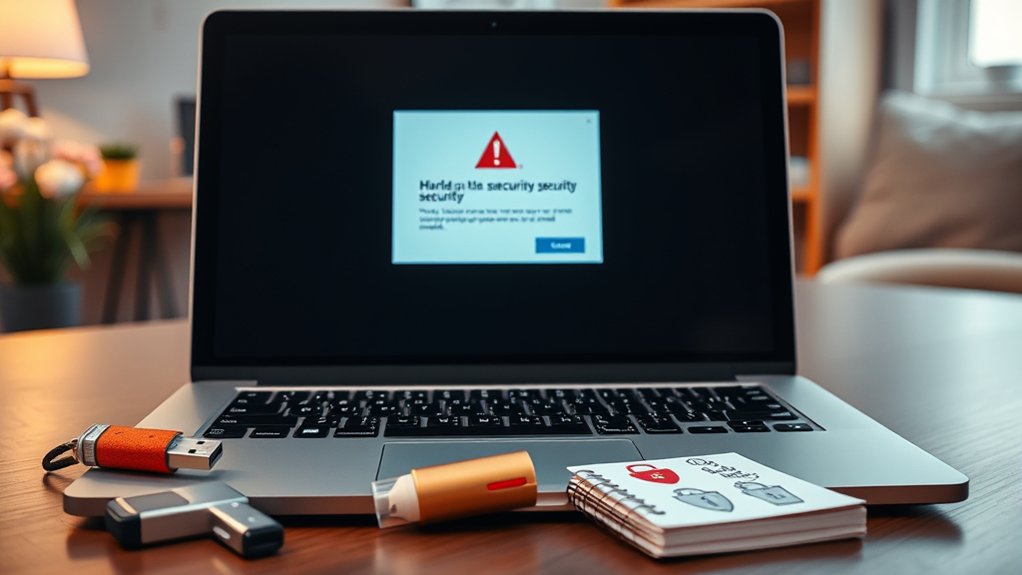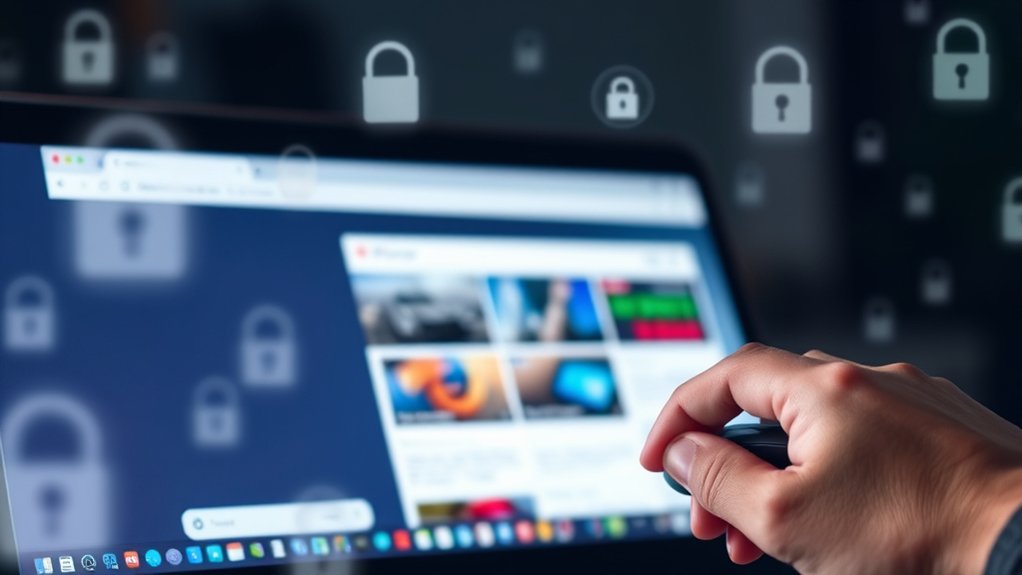ProtonMail offers a highly secure environment for communication, incorporating end-to-end encryption and a unique zero-access architecture for email storage. Operating under Swiss jurisdiction, it benefits from strict privacy laws that limit unauthorized data interception. ProtonMail additionally utilizes advanced email security protocols, such as SPF, DKIM, and DMARC, to protect against spoofing. Users are encouraged to activate two-factor authentication and practice strong password security to improve protection. Further insights into its features reveal additional layers of security measures.

How secure is ProtonMail as a communication platform? This email service employs strong security measures designed to protect user data, primarily utilizing end-to-end encryption. This guarantees that only the designated sender and recipient possess the keys necessary to decrypt the content of emails exchanged.
Moreover, ProtonMail’s zero-access architecture ensures that emails are stored in an encrypted state, rendering them inaccessible even to ProtonMail employees. Operating under Swiss jurisdiction, ProtonMail benefits from stringent privacy laws. These regulations prohibit unauthorized data interception, offering an added layer of protection against governmental intrusion. Additionally, Swiss legal requirements govern responses to official requests, ensuring that any disclosure of user data is tightly controlled. ProtonMail also adheres to the principles of strong privacy laws, enhancing user confidence in their data protection measures.
ProtonMail’s zero-access architecture ensures encrypted emails are secure, protected by Swiss privacy laws against unauthorized access.
Although compliance with legal requests can lead to the disclosure of certain metadata, such cases remain rare, safeguarding the bulk of user data from outside access. The physical infrastructure likewise exemplifies strong security practices. ProtonMail owns its data centers, implementing biometric access control combined with fully encrypted hard disks. Such measures mitigate risks associated with physical breaches of security, strengthening the overall safety of stored data.
In addition, ProtonMail’s .onion site allows users to interact with the platform anonymously, augmenting user privacy. To counteract phishing attempts, ProtonMail employs systems like PhishGuard, which flags suspicious emails, as well as employing link verification techniques that avert URL spoofing. Moreover, the reliance on plaintext transmission by core email protocols like SMTP can expose users to potential security threats, underscoring the importance of ProtonMail’s robust encryption solutions.
The use of SPF, DKIM, and DMARC protocols fortifies defenses against email spoofing and improves message authentication procedures. Transparency plays a vital role in ProtonMail’s operations. The platform’s open-source apps undergo independent audits, cultivating trust through community scrutiny and regular security assessments.
Users are encouraged to activate two-factor authentication and to maintain strong password practices as a personal security checklist.
Frequently Asked Questions
Does Protonmail Support Two-Factor Authentication for Extra Security?
ProtonMail certainly supports two-factor authentication (2FA) to improve user security. This feature requires a password in conjunction with a time-based one-time password generated by an authenticator app, such as Google Authenticator.
By implementing 2FA, ProtonMail reduces the risk of unauthorized access, as an attacker would need both the user’s password and their mobile device.
Moreover, users can obtain recovery codes to regain access in case of lost authentication methods, thereby reinforcing account security further.
Can I Use Protonmail on Mobile Devices?
ProtonMail is accessible on mobile devices, available for both iOS and Android platforms. The mobile application offers crucial features such as encrypted emailing, attachment handling, and management of multiple accounts.
User feedback indicates a typically user-friendly interface, facilitating organization through folders and labels. Recent updates have notably improved the Android version’s stability.
Moreover, security features like biometric authentication strengthen the overall protection of user data, further establishing ProtonMail’s commitment to privacy.
Is Protonmail Open Source for Public Scrutiny?
ProtonMail is certainly open source, allowing for public scrutiny of its web and mobile applications.
The company’s code is accessible on GitHub, promoting community involvement and transparency. Independent security audits validate the code’s integrity, with results publicly available.
This open-source model boosts trust, as vulnerabilities can be identified by the global security community. In addition, the permissive licensing encourages worldwide contributions, enabling continuous improvements in both security features and overall functionality.
What Is the Maximum Attachment Size Allowed in Protonmail?
ProtonMail enforces a maximum attachment size limit of 25 MB per email, applicable to both incoming and outgoing messages.
Moreover, users may attach a maximum of 100 files per email.
For larger files, Proton Drive offers a secure alternative, allowing users to share files via links that can include options such as password protection and expiration dates.
Users often express a desire for higher limits, particularly for professional communications involving high-resolution images or videos.
How Does Protonmail Handle Metadata From Sent Emails?
ProtonMail manages email metadata, including sender and recipient addresses and subject lines, which are essential for email delivery.
Although the service utilizes strong Swiss privacy laws to protect this data, it remains susceptible to legal compulsion under valid court orders.
Currently, metadata cannot be encrypted without compromising functionality.
In light of these challenges, regulatory frameworks improve the security of metadata compared to typical email providers, necessitating user awareness of inherent risks in secure communications.









